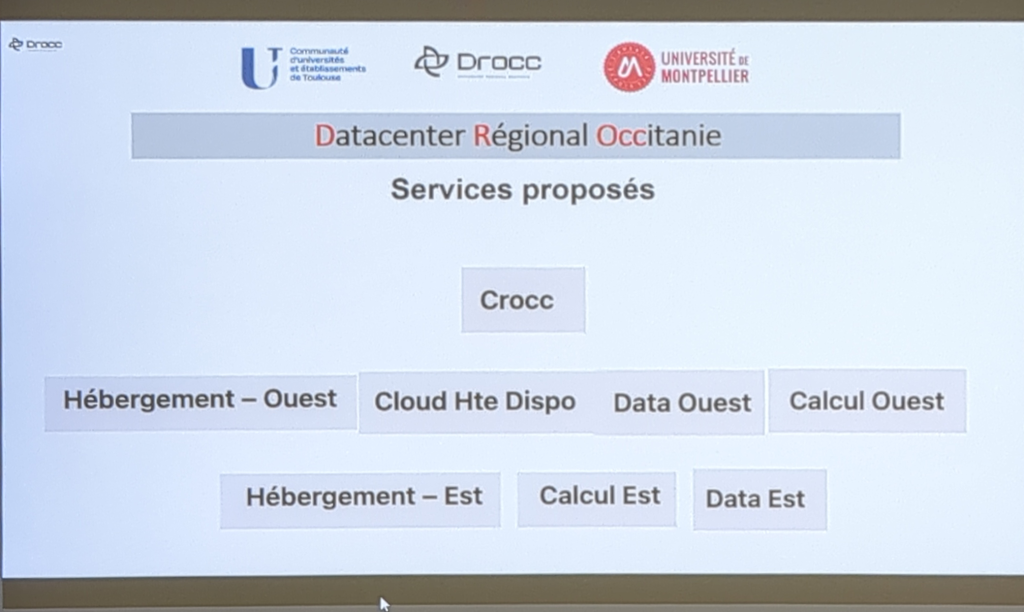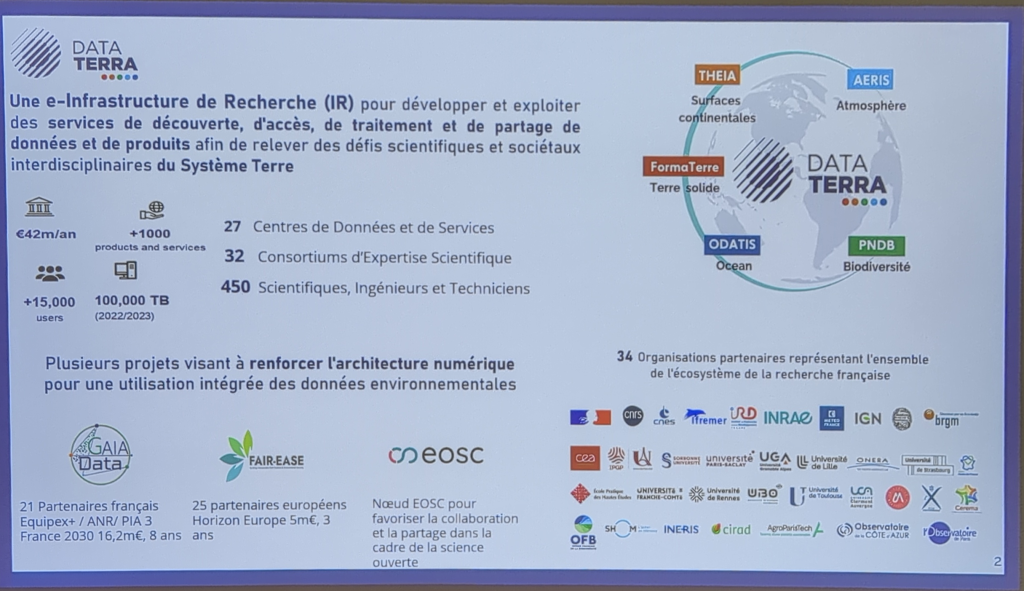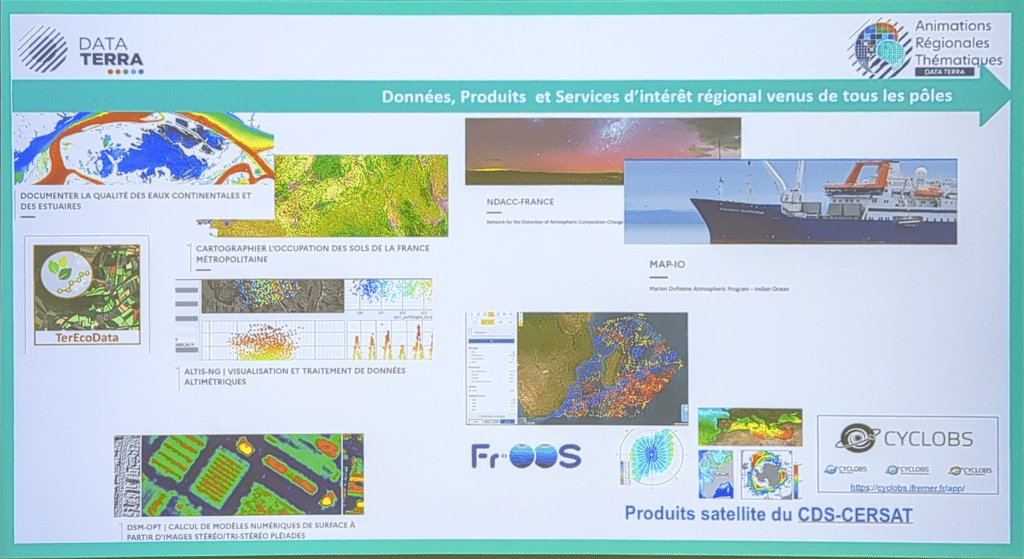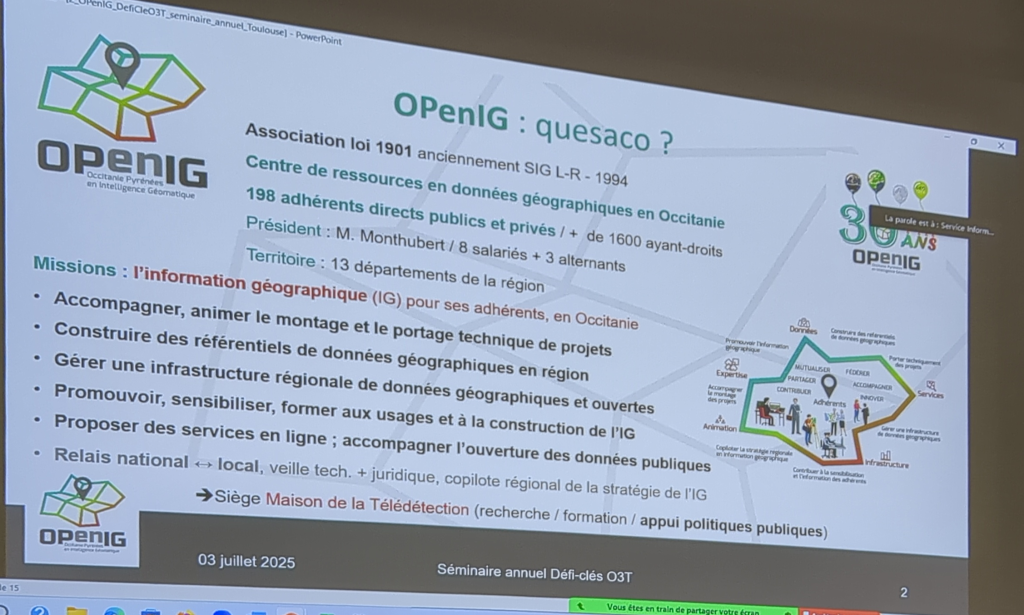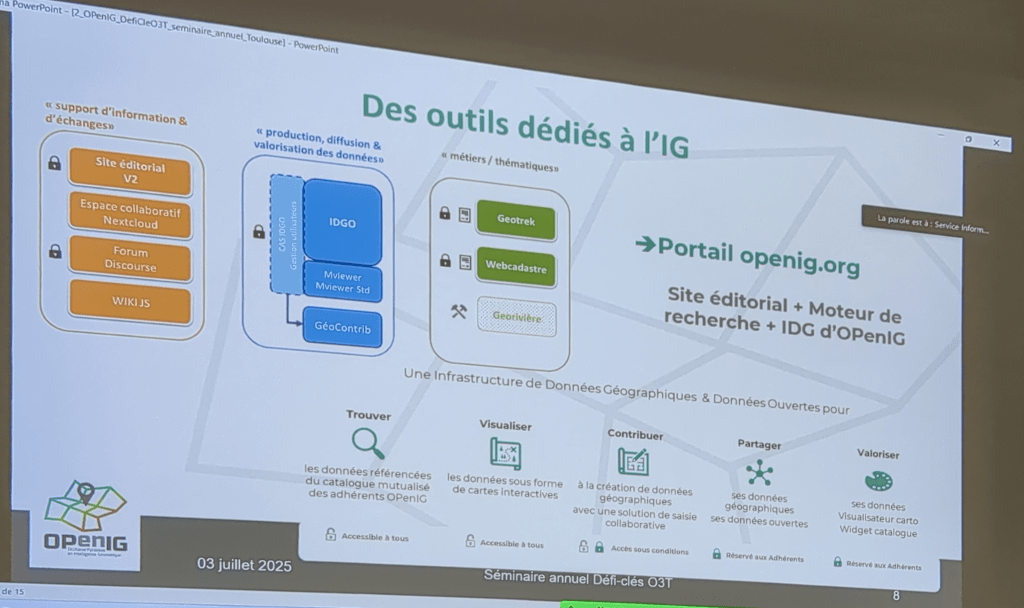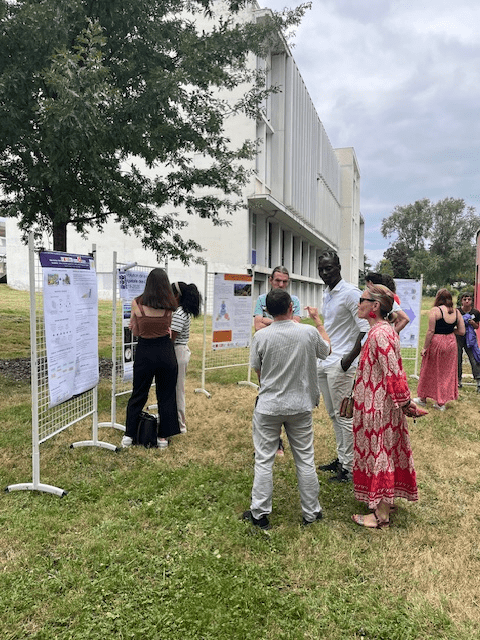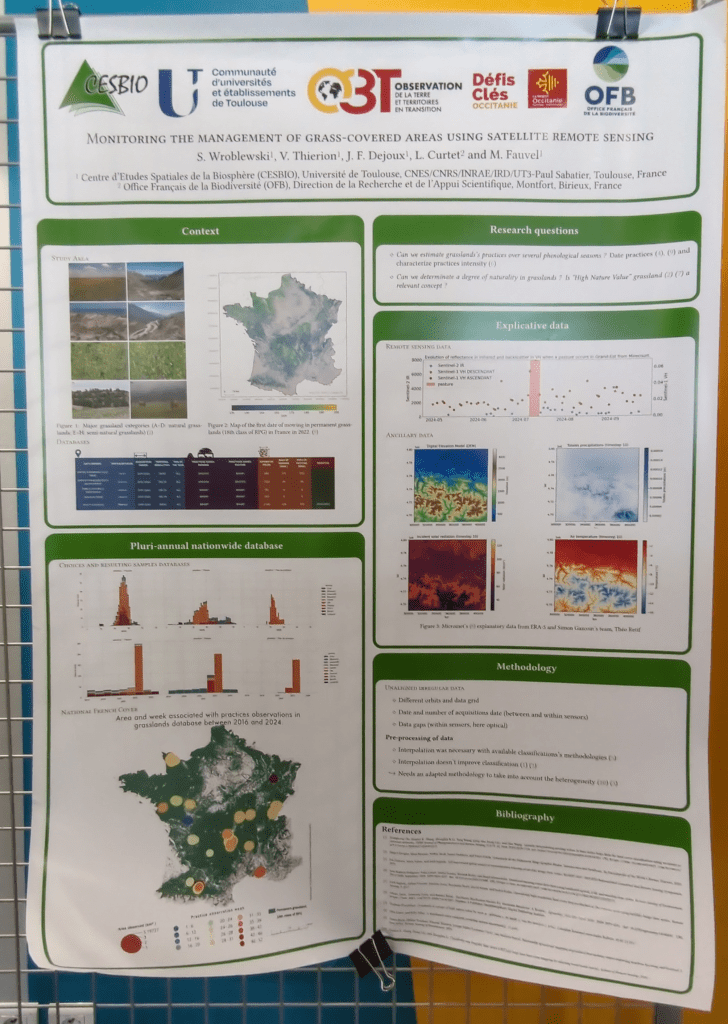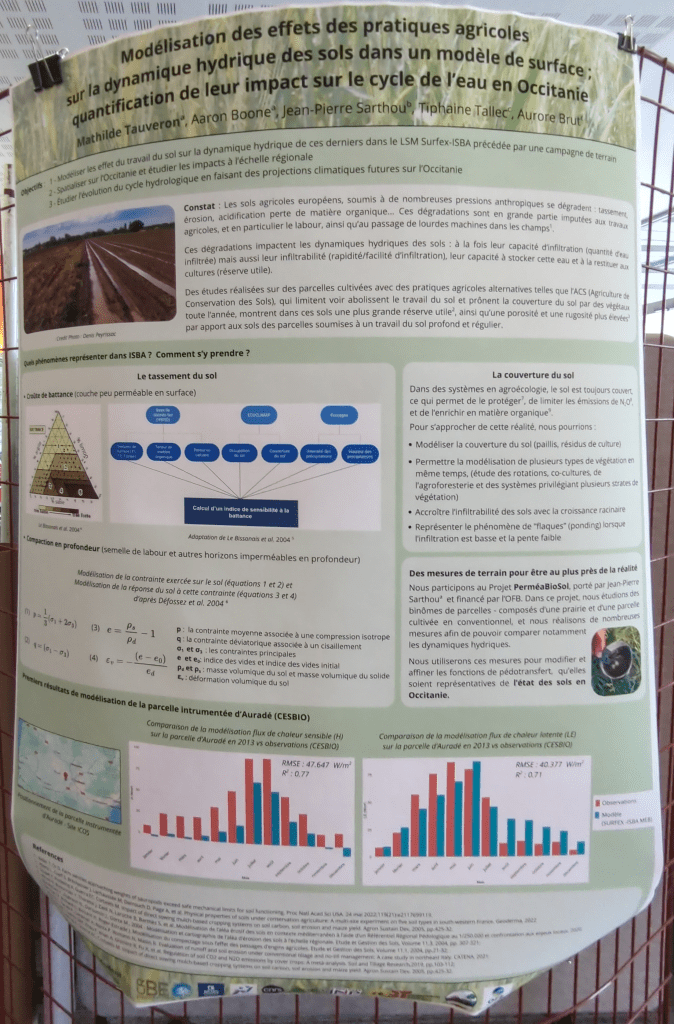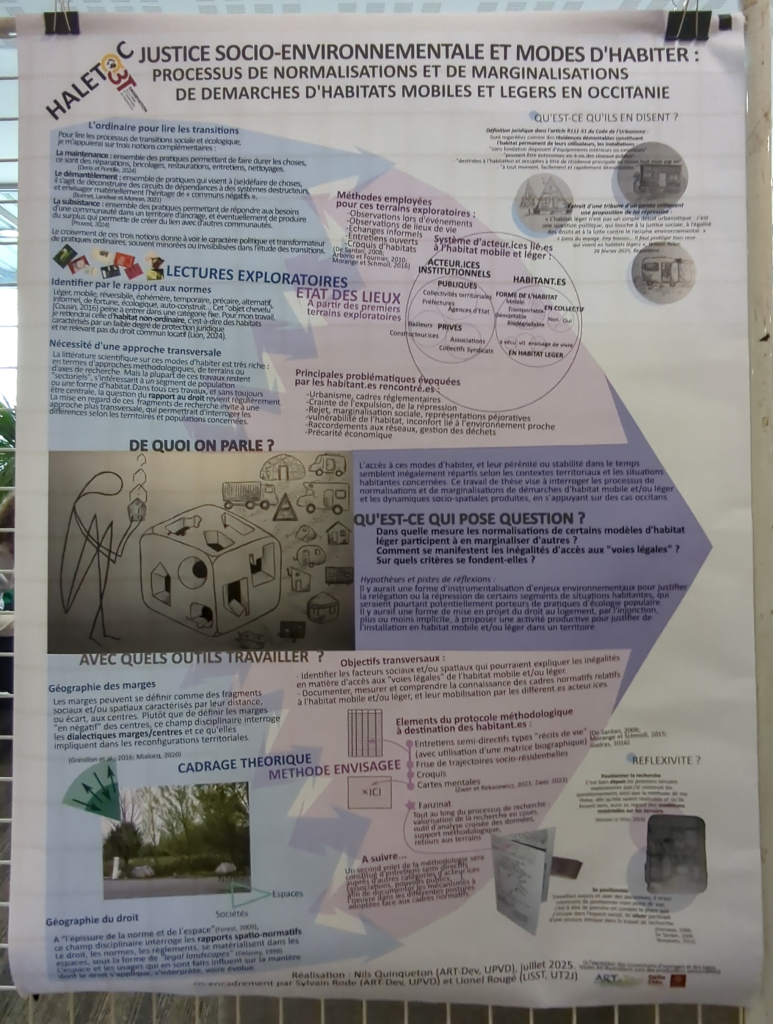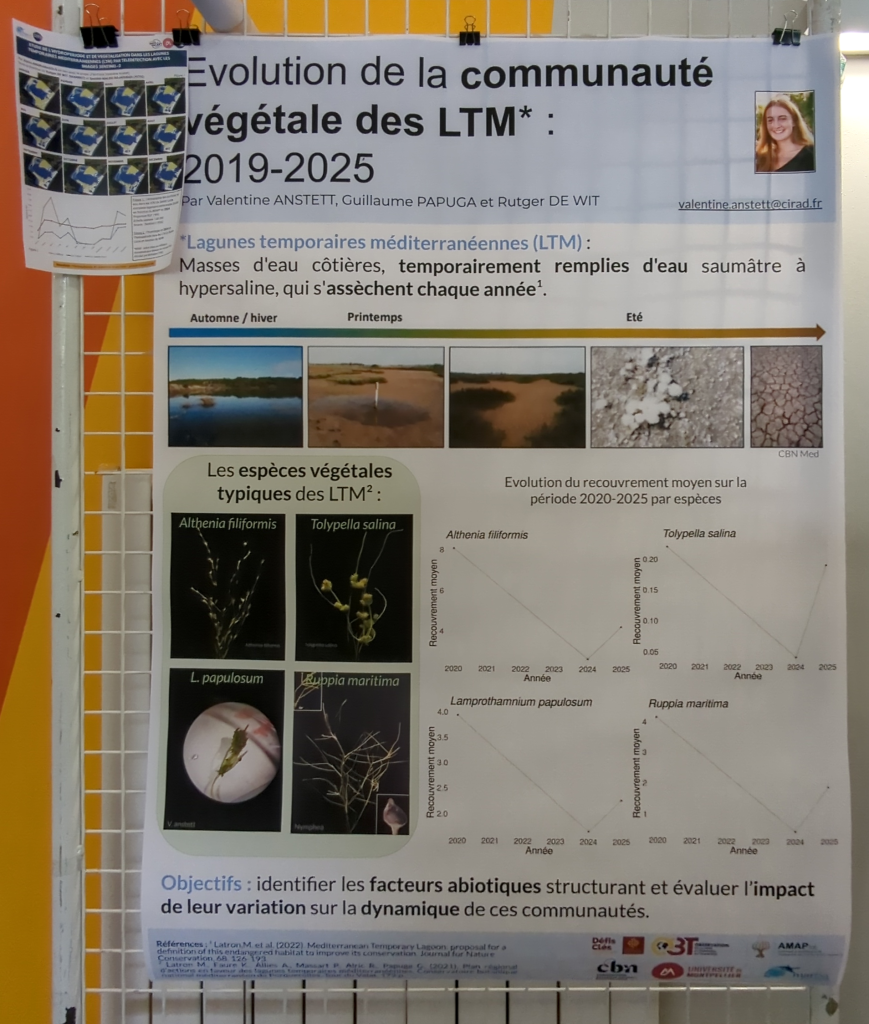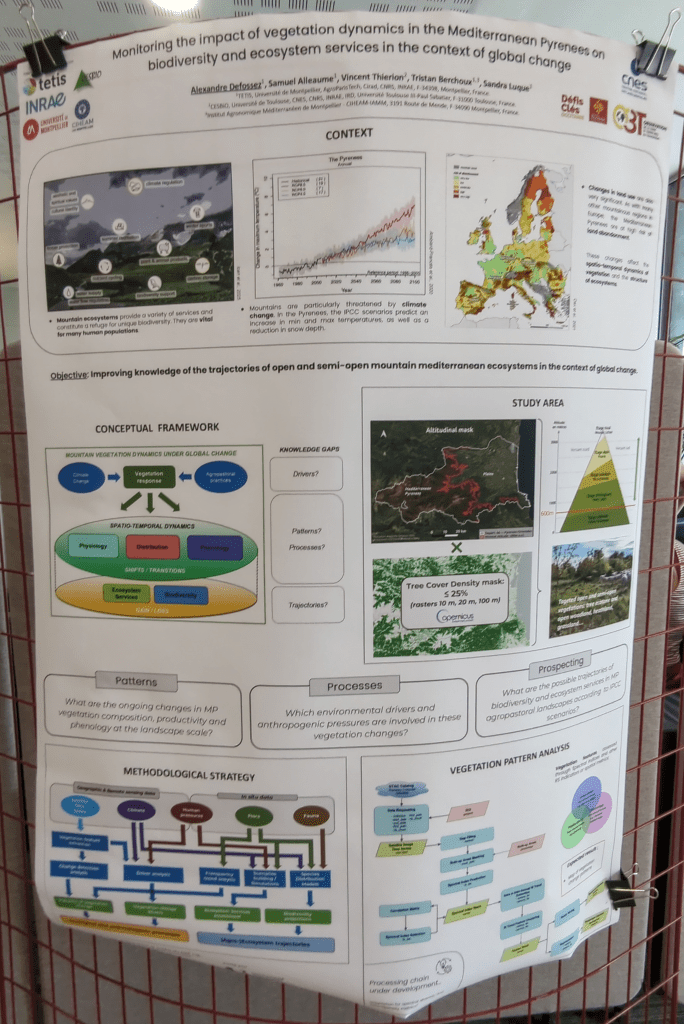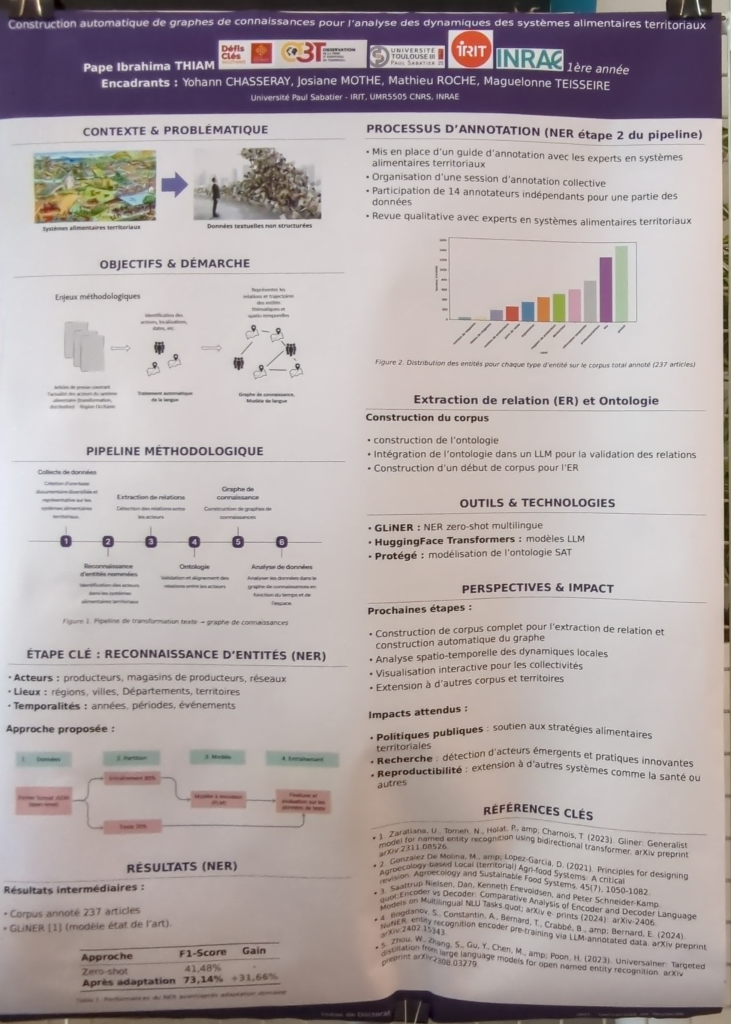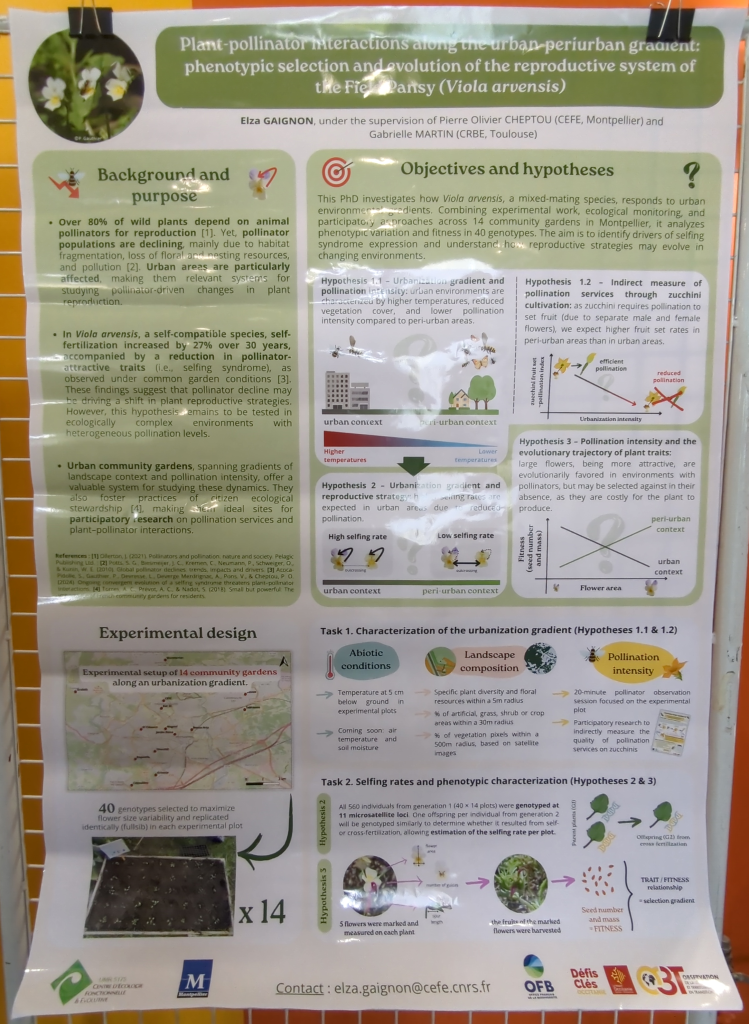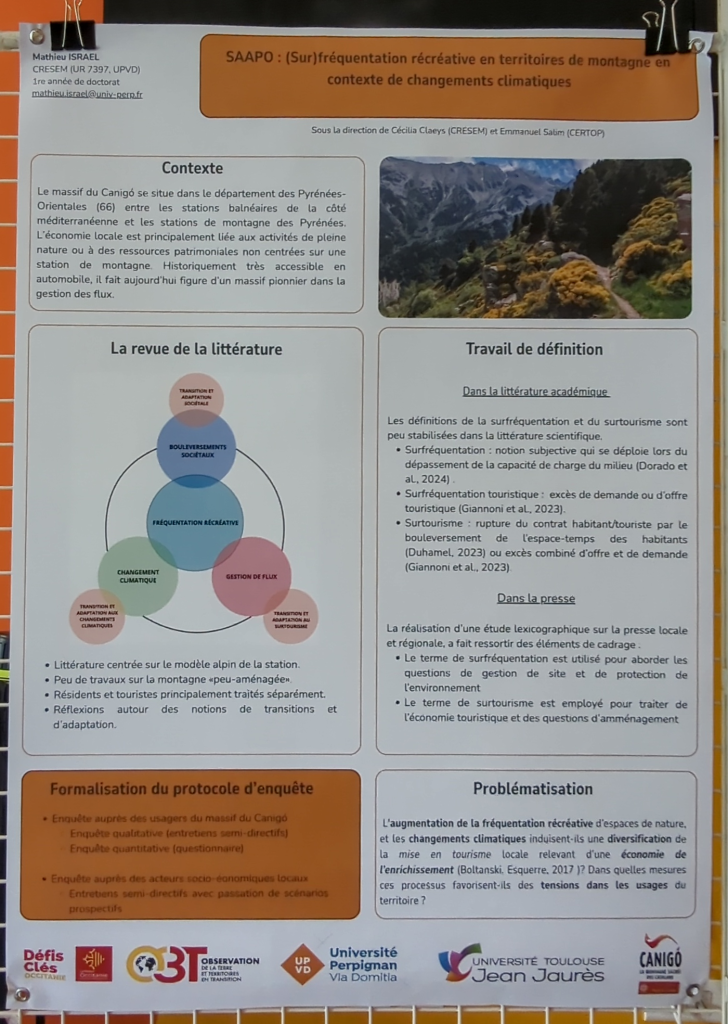
📅 Thursday 3 July 2025
📍 IRIT auditorium – Cr Rose Dieng-Kuntz, 31400 Toulouse
The 2025 edition of O3T’s annual seminar brought together O3T members as well as researchers, practitioners, and institutional partners for a rich and interdisciplinary exchange of ideas and experiences.
The event, structured around plenary sessions, flash presentations, and collaborative discussions, highlighted the growing role of territorial observation data in supporting environmental and societal transitions.
Opening Session Benoît Mingam & Josiane Mothe
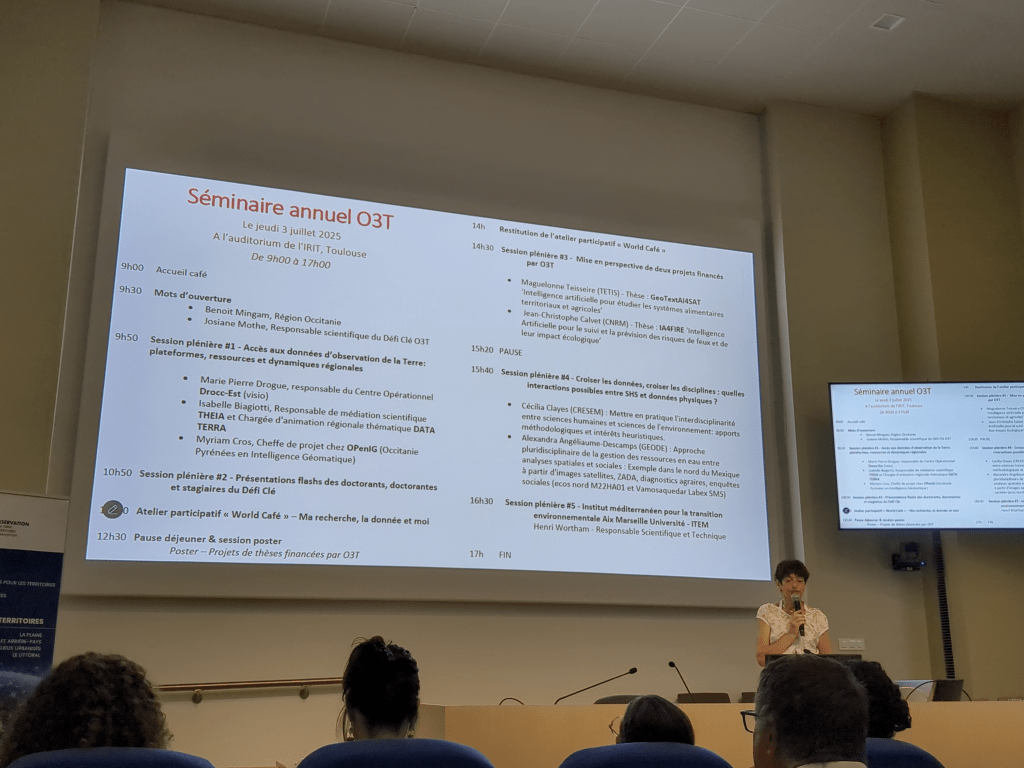
The seminar opened with welcoming words by Benoît Mingam from Midi-Pyrénées’ regional council who co-funds O3T and by Josiane Mothe who leads O3T project. She is also participating in AI4AGRI. Together they offered a comprehensive reminder of the O3T initiative’s missions and underlined the strength of the network, now composed of 44 institutional partners, and recalled the project’s governance structure, territorial focus areas, and key objectives.
Since 2023, O3T has funded 10 PhD thesis and 17 internships. Future opportunities include the opening of 4 post-doctoral positions and 12 new internships, reinforcing its support for early-career researchers.
Plenary Session 1: Access to Earth Observation Data: Platforms, Resources, and Regional Dynamics
Marie-Pierre Drogue presented the DROCC-EST platform and the ISDM initiative, encouraging participants to test the platform to better define their needs for data and services.
Isabelle Biagiotti emphasized the importance of F.A.I.R. data principles and provided an overview of the services offered by the Data Terra and Theia platforms.
Myriam Cros introduced the work of the Occitanie Pyrénées en Intelligence Géomatique OPenIG association, which supports geomatics intelligence in the Occitanie Pyrénées region.
Plenary Session 2: PhD Flash Presentations and Pape Ibrahima Thiam PhD presentation
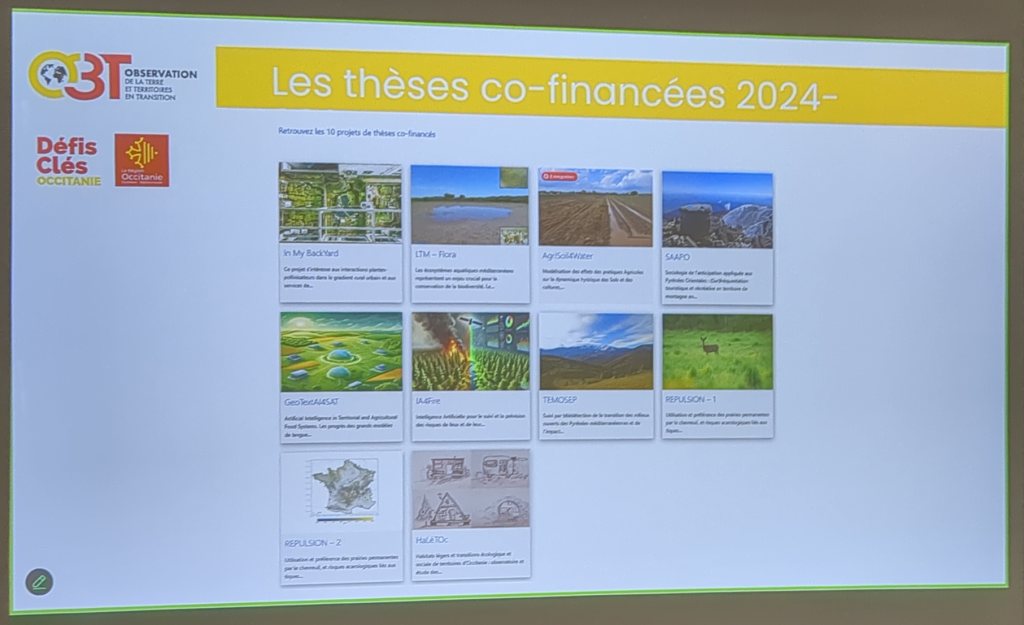
Doctoral students from O3T presented their PhD thesis state during flash presentations.
Among them, Pape Ibrahima Thiam, affiliated with both AI4AGRI and O3T, presented his current research within his thesis (GeoTextAI4SAT) exploring the application of large language models and knowledge graphs to to magazines combined with spatio-temporal data to better identify actors, events, and their dynamics in territorialized food systems.
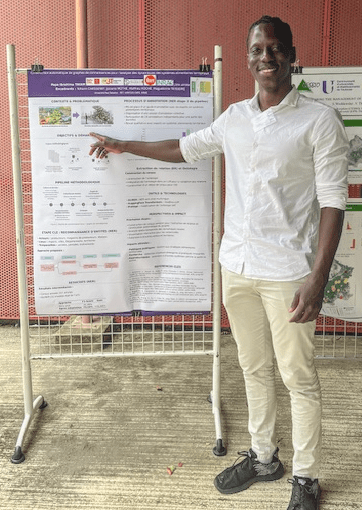
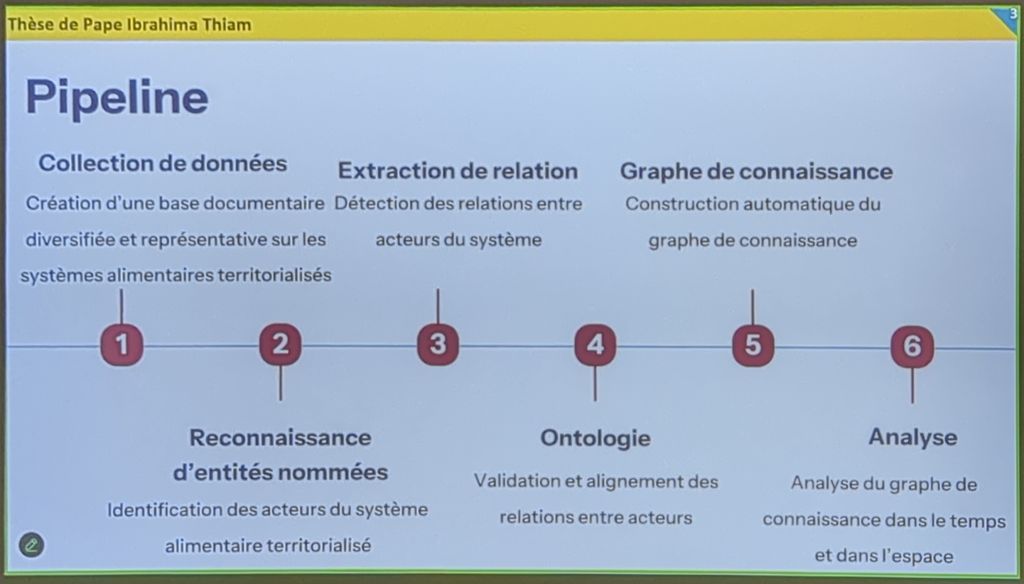
World Café: “My Research, Data, and Me”
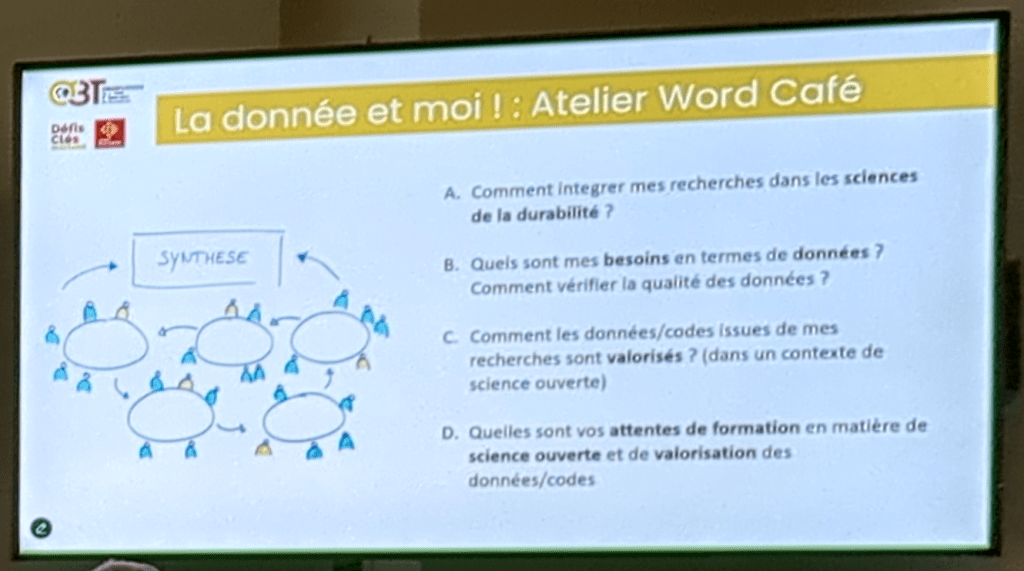
Participants took part in a collaborative World Café, rotating through thematic tables to discuss shared challenges and aspirations related to research data, collaboratively building up knowledge on each tables themes.
Theme A: Integrating Sustainability Science Research
- Agreement on the need for shared language and mutual understanding across disciplines.
- Emphasis on respecting the contributions and expertises of involved research communities.
- There is a need of co-constructing research between the different actors and members of the scientific community.
Theme B: Theme A: Data Needs
- Discussion focused on the quality of data.
- Recognition that valuable data can originate from anecdotal or informal sources.
- Balancing academic publication pressures with interdisciplinary collaboration remains challenging.
Theme C: Valuing Research Data and Code
- Need to properly distinguish between quantitative data and media.
- Note everyone has knowledge of the various data formats.
- Laws such as “Loi Le Maire” require open data sharing.
- Questions of what counts as data versus as research results were reflected on.
- How can research results be disseminated among the general public?
- Importance of participating in conferences and vulgarisation initiatives.
Theme D: Training Needs in Open Science
- Interest in training on anonymization, ethics and the use of GitHub.
- Need for sharing interview guides.
- Need for a clarification of open science actors.
- Need for experience-sharing within the O3T network.
Lunch break: Poster Session
Plenary Session 3: Highlight on Two O3T-Funded PhD thesis
Maguelonne Teisseire presented the GeoTextAI4SAT PhD topic, which combines language models with Named Entity Recognition (NER) to study the evolution of territorial food systems. This PhD topic aims at building knowledge graphs from a corpus of local magazines and aims to understand how food distribution networks change over time.
Jean-Christophe Calvet presented AI4FIRE, a project leveraging satellite data and machine learning to assess and forecast wildfire risk and its ecological impacts. His talk served as a reminder of the pressing need for advanced monitoring tools in the face of accelerating climate change.
Plenary Session 4: Crossing Data and Disciplines: Interactions between Social Sciences and Physical Data
Cécilia Claeys delivered a talk on the methodological and epistemological value of interdisciplinarity. She explained the differences between interdisciplinarity, pluridisciplinarity, and transdisciplinarity through concrete research cases and offered practical guidance on collaborating across multi disciplines.
Alexandra Angéliaume-Descamps discussed a case study on water resource management in northern Mexico. Drawing on spatial analysis, satellite imagery, agroeconomic diagnostics, and social surveys, she showcased the power of a multidisciplinary approach in understanding complex socio-environmental issues.
Plenary Session 5: Presentation of the Institut Méditerranéen pour la Transition Environnementale (ITEM)
Henri Wortham introduced ITEM, an institute created in 2020 to support environmental transition by combining research and education.
ITEM’s mission is grounded in three main challenges:
- Analyzing environmental and social change
- Optimizing resource use while limiting contamination
- Enhancing societal resilience to environmental risks.

